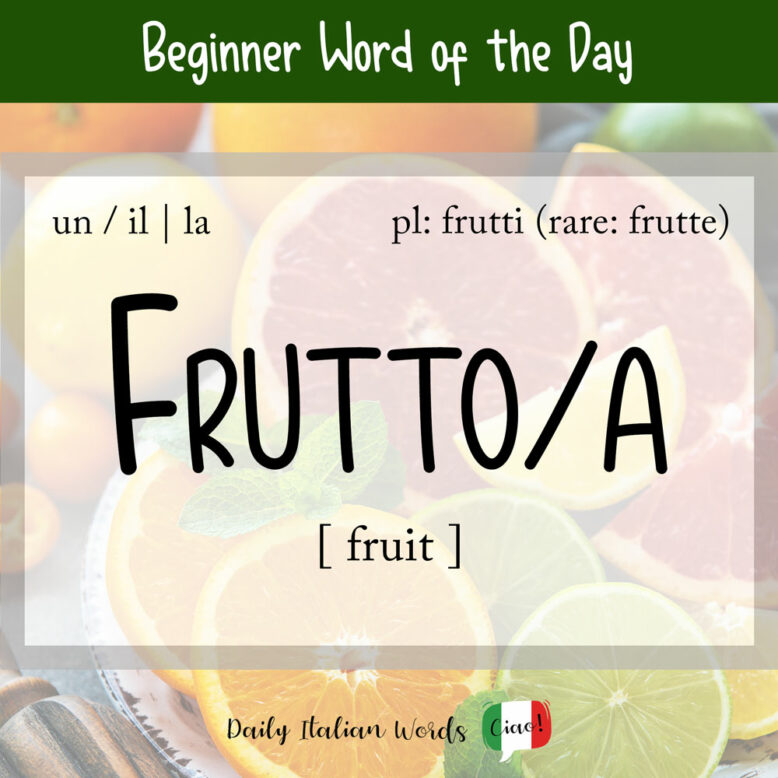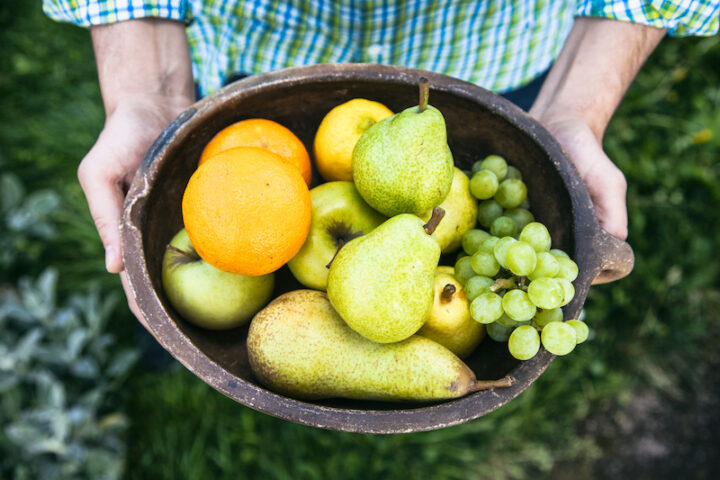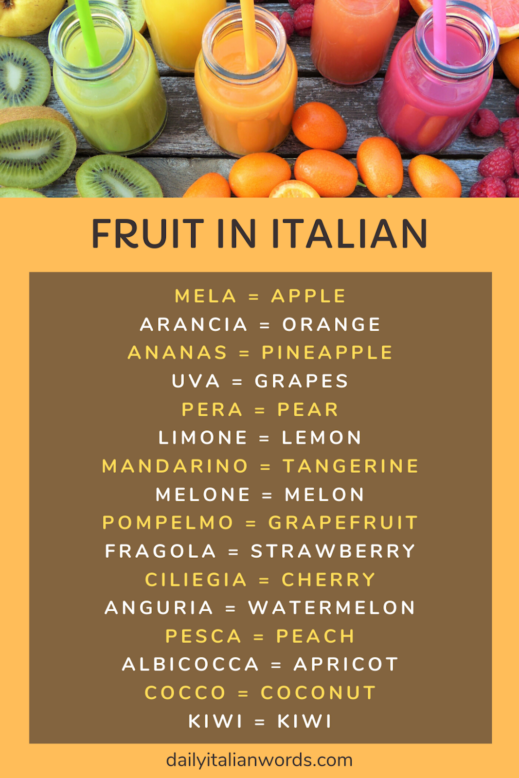The Italian word frutta, like the word fruit in English, is a singular collective noun that refers to the category fruit in general, or a collection of fruit on display in a basket. It may also specifically denote the fruit course Italians tend to consume at the end of lunch.

Frutta is almost always used with the definite article la. You will rarely see it preceded by the indefinite article una. The feminine plural exists (frutte), but it is not common.
To talk about a single item of fruit, Italians prefer the masculine noun frutto (plural: frutti) which refers to a single item of fruit such as an individual apple or orange. In English, we often translate this as some fruit, a piece of fruit or a serving of fruit. In this case, both definite and indefinite articles can be used (il frutto, un frutto, i frutti, dei frutti)
La frutta contiene tantissime vitamine.
Fruit contains loads of vitamins.
Cerco sempre di mangiare un frutto dopo il pasto.
I always try to eat a piece of fruit after my meal.
Italians place a lot of importance on eating frutta di stagione (seasonal fruit). Here are some of the different kinds of fruit you can expect to eat throughout the year.
If you can’t get your hands on fresh fruit (frutta fresca), there are other ways of making sure you get the vitamins you need such as drinking fruit juices (succhi di frutta), eating dried fruit (frutta secca) or using canned fruit (frutta in scatola) to make a fruit salad (macedonia). Another good option is to grow your own fruit tree (albero da frutta), if you have the space that is!

The word for ripe fruit in Italian is frutta matura whereas unripe fruit is frutta acerba.
The popular expression essere alla frutta (lit: to be at the fruit) is used to say that someone is at the end of the road with no chance of making a comeback, usually because they’ve run out of resources, energy or possibilities.
Quel cantante è alla frutta. Non ha più la voce di una volta.
That singer has had it. He doesn’t have the voice he once did.
It differs from the expression arrivare alla frutta which means to arrive at the end of something or to arrive late.

Heather Broster is a graduate with honours in linguistics from the University of Western Ontario. She is an aspiring polyglot, proficient in English and Italian, as well as Japanese, Welsh, and French to varying degrees of fluency. Originally from Toronto, Heather has resided in various countries, notably Italy for a period of six years. Her primary focus lies in the fields of language acquisition, education, and bilingual instruction.


